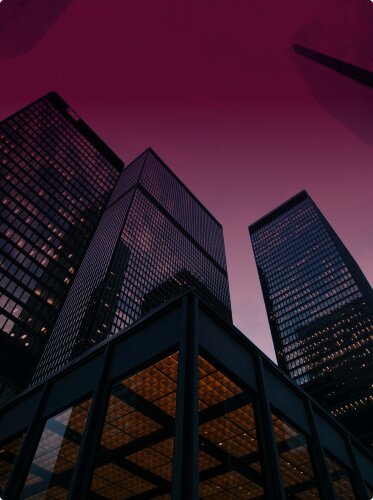Best Renewable & Alternative Energy Lawyers in Santo Domingo
Share your needs with us, get contacted by law firms.
Free. Takes 2 min.
List of the best lawyers in Santo Domingo, Dominican Republic
About Renewable & Alternative Energy Law in Santo Domingo, Dominican Republic
Renewable and alternative energy law in Santo Domingo, Dominican Republic focuses on regulating the production, distribution, and use of energy derived from sources like solar, wind, hydro, and biomass. The Dominican government actively encourages investment in clean energy, aiming to reduce dependence on fossil fuels, cut greenhouse gas emissions, and improve energy security. Santo Domingo, the nation’s capital, is at the center of these developments, with various legal frameworks supporting both large-scale and small-scale renewable energy projects. People engaging in the renewable energy sector-whether as investors, developers, property owners, or end-users-should understand the local legal requirements and opportunities to ensure compliance and maximize incentives.
Why You May Need a Lawyer
Engaging a lawyer who specializes in renewable and alternative energy in Santo Domingo can be beneficial in several common scenarios:
- Securing government permits and licenses to install or operate renewable energy systems.
- Navigating the complex regulatory framework applicable to energy projects.
- Negotiating power purchase agreements and contracts with suppliers or utility companies.
- Obtaining tax incentives, subsidies, or financing for renewable energy initiatives.
- Addressing land use and zoning concerns for renewable energy installations.
- Complying with environmental regulations related to project development.
- Resolving disputes with partners, contractors, government agencies, or neighbors.
- Protecting intellectual property rights for innovative energy technologies.
A lawyer can help you avoid costly mistakes, identify available benefits, and safeguard your interests throughout your renewable energy venture.
Local Laws Overview
The Dominican Republic’s legal framework for renewable and alternative energy is driven by several key laws, most notably Law 57-07 on Incentives for the Development of Renewable Energy Sources. This law establishes a series of incentives, such as tax exemptions, import duty reductions, and guaranteed access to the national energy grid for renewable projects. It also outlines the roles of regulatory bodies including the National Energy Commission (CNE) and the Superintendence of Electricity, which oversee sector compliance and enforce quality standards.
Individuals or companies looking to develop renewable energy projects in Santo Domingo are required to submit documentation for project approval, demonstrate technical compliance, and often participate in public tenders. There are also specific regulations regarding environmental impact assessments, grid interconnection requirements, and the sale of surplus energy. Urban installations-like solar panels on rooftops-may be subject to additional municipal approval. Failure to comply with these requirements can result in delays, fines, or loss of incentives, making legal guidance essential.
Frequently Asked Questions
What types of renewable energy projects are most common in Santo Domingo?
Solar and wind energy projects are the most prevalent, with increasing interest in biomass and hydroelectric initiatives. Rooftop solar installations in homes and businesses are particularly popular in Santo Domingo due to favorable sunlight conditions.
What incentives are available for renewable energy projects?
Law 57-07 offers various incentives, including exemptions from import duties on equipment, income tax breaks, and accelerated depreciation for assets used in renewable energy projects. There are also preferential access rules for connecting to the national electricity grid.
Do I need permits to install solar panels on my property?
Yes, permits are required. You will need approval from local authorities and, depending on the size and type of installation, from national energy regulators as well. An energy lawyer or specialist can help you navigate the process.
Can I sell surplus energy back to the grid?
Yes, the law allows for net metering, enabling individuals and businesses to sell surplus energy generated by renewable sources back to the grid. Terms and compensation rates are subject to regulation.
Who regulates renewable energy projects in Santo Domingo?
The main regulatory bodies are the National Energy Commission (CNE) and the Superintendence of Electricity, both of which establish technical standards and supervise compliance in the sector.
How do I secure financing for a renewable energy project?
Several public and private financing options exist, including credit facilities from banks, international investment programs, and governmental incentive schemes. A lawyer can advise on eligibility and assist in structuring agreements.
What are the environmental requirements for renewable energy developments?
Most projects must undergo an environmental impact assessment and receive clearance from the Environmental Ministry. Small-scale projects may have fewer requirements but still need to ensure compliance with basic standards.
Are there special considerations for foreign investors in renewable energy?
Foreign investors are welcome and enjoy the same rights and incentives as locals. However, understanding the legal process and ensuring proper documentation is crucial for permits, taxes, and repatriation of profits.
What happens if I do not comply with renewable energy regulations?
Non-compliance can result in fines, denial of incentives, or even suspension of the project. Legal assistance is key to avoiding these pitfalls and ensuring all obligations are met.
How long does it take to get all necessary approvals for a renewable energy project?
Timelines vary depending on project size and complexity. Small residential projects may get approval in a few weeks, while larger developments can take several months. Early legal consultation can expedite the process.
Additional Resources
For further guidance and support in renewable and alternative energy matters in Santo Domingo, consider reaching out to:
- National Energy Commission (CNE) - Oversees policy, planning, and regulation of energy projects.
- Superintendence of Electricity - Regulates technical and commercial aspects of electricity supply.
- Environmental Ministry (Ministerio de Medio Ambiente y Recursos Naturales) - Responsible for environmental impact assessments and clearances.
- Chamber of Commerce and Production of Santo Domingo - Provides business support and information about investing in the energy sector.
- Local law firms specialized in energy law - Offer legal advice and representation for renewable projects.
- Dominican Association of Renewable Energy (ASOFER) - Promotes sector interests and networks among stakeholders.
Next Steps
If you are considering a renewable or alternative energy project in Santo Domingo, the following steps can help ensure your endeavor runs smoothly:
- Start by clearly defining your project goals and scope.
- Consult early with a legal professional who understands local renewable energy regulations.
- Gather the necessary documents, including property titles, technical specifications, and environmental reports.
- Work with your lawyer to navigate permit applications, compliance checks, and potential incentive claims.
- Engage with relevant government bodies to stay informed of process updates and policy changes.
- Prepare for long-term operational and legal compliance, especially if planning ongoing energy generation and sales.
Taking these steps and seeking specialized legal guidance can help you avoid setbacks, maximize available benefits, and position your project for success in the dynamic renewable energy market of Santo Domingo.
Lawzana helps you find the best lawyers and law firms in Santo Domingo through a curated and pre-screened list of qualified legal professionals. Our platform offers rankings and detailed profiles of attorneys and law firms, allowing you to compare based on practice areas, including Renewable & Alternative Energy, experience, and client feedback.
Each profile includes a description of the firm's areas of practice, client reviews, team members and partners, year of establishment, spoken languages, office locations, contact information, social media presence, and any published articles or resources. Most firms on our platform speak English and are experienced in both local and international legal matters.
Get a quote from top-rated law firms in Santo Domingo, Dominican Republic — quickly, securely, and without unnecessary hassle.
Disclaimer:
The information provided on this page is for general informational purposes only and does not constitute legal advice. While we strive to ensure the accuracy and relevance of the content, legal information may change over time, and interpretations of the law can vary. You should always consult with a qualified legal professional for advice specific to your situation.
We disclaim all liability for actions taken or not taken based on the content of this page. If you believe any information is incorrect or outdated, please contact us, and we will review and update it where appropriate.













